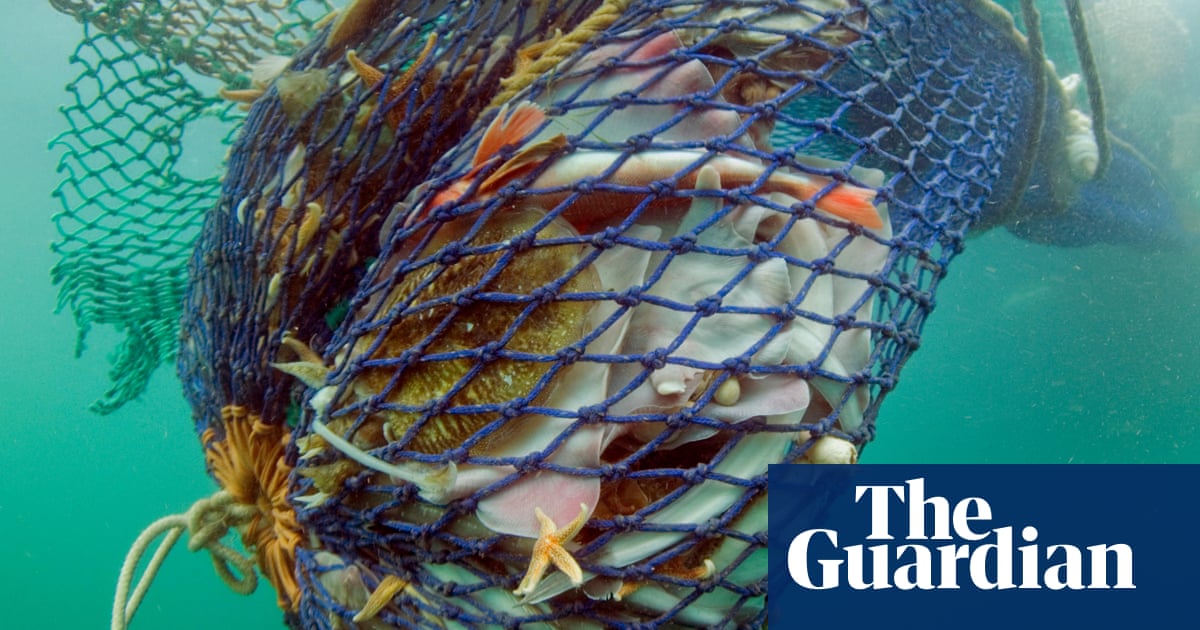Ministers must ban bottom trawling for fish in marine protected areas, an influential group of MPs has said, because the destructive practice isdevastating the seabed and marine life.
The UK parliament’s environmental audit committee called for a ban to encompass dredging and mining as well as the bottom trawling of fish in the 900,000 sq km covered by nearly 180 marine protected areas.
Despite the name, these areas are open for many sorts of fishing, including bottom trawling – the practice of dragging immense and heavy nets across the seabed to scoop up all in their path, most of which is discarded while prized fish such as sole, cod and haddock are kept.
“Bottom trawling and scallop dredging are themost damaging forms of fishing,” said Jonny Hughes, senior policy manager at the Blue Marine Foundation thinktank and charity. “They devastate the seabed and have amongst the highest rates of bycatch of any fishing method – most of this is simply thrown away. It is absurd and misleading to call any part of the ocean that allows these activities protected.”
Campaigners have been calling for years for a ban, but public outcry has intensified sincea film by Sir David Attenborough was released last month, to coincide with his 99th birthday.
The film, Ocean – which was released in cinemas and will be available on streaming services in June – showed in detail some of the vital habitats raked by the massive nets that in effect plough up the seabed, leaving deep scars where it can take many years for marine life to recover.
Toby Perkins, the chair of the Commons committee, said: “Ministers must ensure that marine protected areas live up to their name. [They] have all the information they need to press ahead with banning bottom trawling in the offshore protected areas where it presents the most risk. Why the delay? Our oceans cannot afford any more prevarication. It is time to act.”
The UK will send representatives to a UN oceans conference later this month. Ministers have previously indicated they could take action, and there are protections in place against damaging fishing practices in about 60% of the current marine protected areas but no full ban has yet been brought in.
A spokesperson for the Department for Environment,Foodand Rural Affairs said: “Our precious marine animals and habitats have been under threat for too long. This government is committed to protecting and restoring our oceans to good health.”
